“Smell is a potent wizard that transports us across a thousand miles and all the years we have lived.” - The Importance of the Sense of Smell by Helen Keller.
One of the first books I ever bought on the topic of herbal medicine was The Fragrant Pharmacy by Valerie Ann Worwood. This classic text and its subsequent volumes are not only a wealth of information about the myriad uses of essential oils, they also explore at length the fascinating history of perfume as medicine.
The practice of creating perfumes as remedies has been going on for aeons. Since time immemorial, humans have used fragrant essences and oils for the purpose of healing. Ancient Greek pharmacological literature details the preparation of perfumed garlands and wreaths for hangover induced headaches. Apothecary notebooks from the times of the plague include recipes for fragrant salves to smear under the nostrils, so as to avoid breathing in the “bad air” believed to be responsible for the transmission of diseases.
Fragrant pharmacy isn’t just a thing of the past. It’s recently come to light that certain odours can trigger responses in the limbic system which regulates our mood and emotions. Ongoing research investigating the use of essential oils such as Lily of the Valley and Frankincense for conditions like Alzheimer’s, Dementia and Amnesia is based around the fact that our sense of smell is intimately connected with the areas of the brain pertaining to memory.
It’s estimated that up to 1.6 million people in the US alone lost their sense of smell for at least six months as a result of a Covid-19 infection. Cases of anosmia, (or as it’s more commonly known “smell blindness”) have increased dramatically over the last few years, prompting sufferers to seek help in the form of smell retraining kits designed to help re-grow their olfactory nerves.
There are so many diverse applications for oils and perfumes which extend way beyond the use of aroma as the therapeutic agent. It’s clear that aromatic herbal preparations are a very valuable addition to the modern day dispensary.
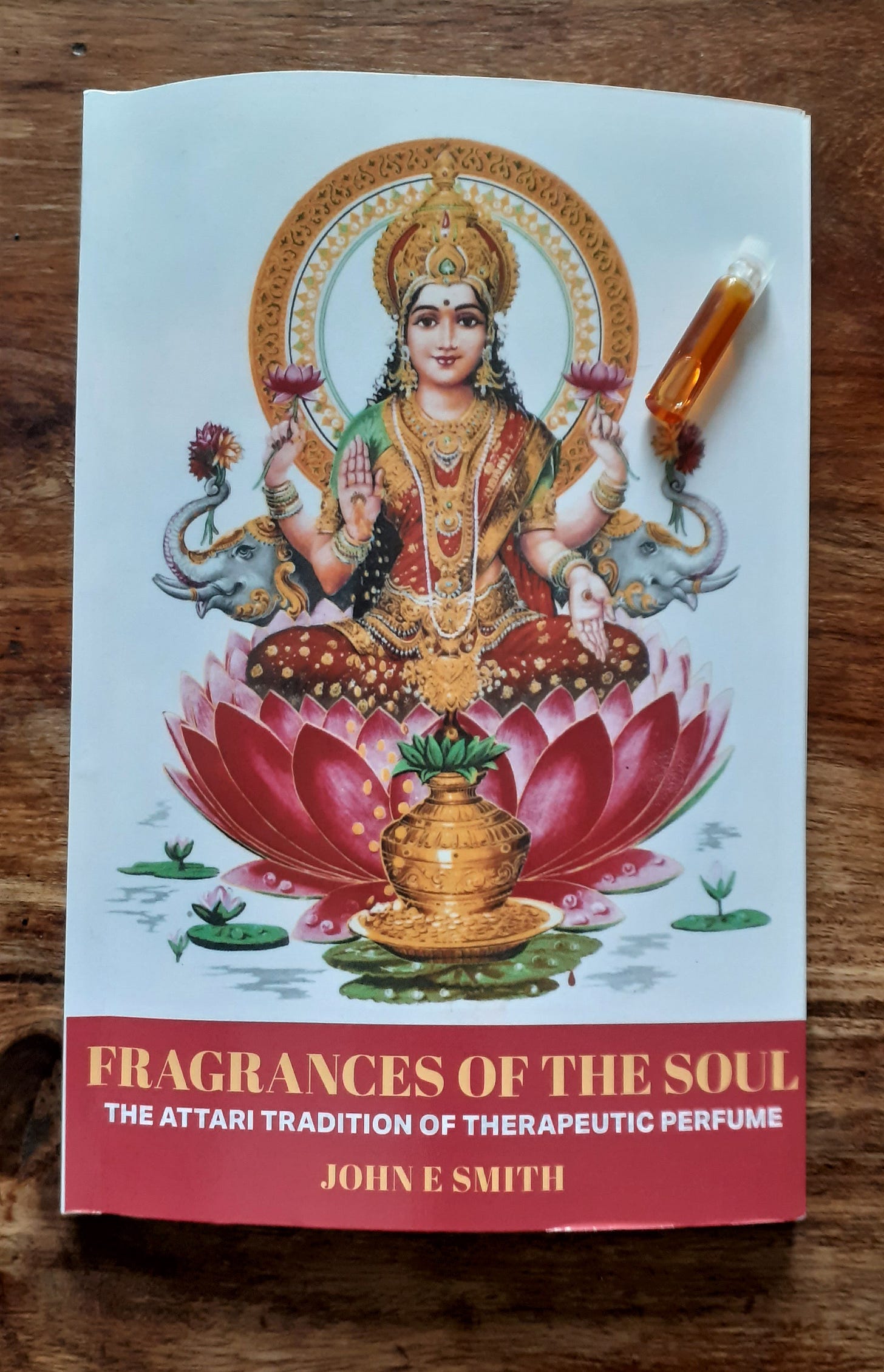
Attars - The Timeless Apothecary
I’ve recently become fascinated by the subject of attars (an Arabic word for fragrance or essence,) and have been reading the work of John Smith, a British herbalist who writes about the origins of therapeutic perfume from the Persian traditions.
It would appear, that unlike our modern GPs, physicians in the days of yore were very keen indeed on smelling their patients. An unpleasant smell was a sure sign of illness. By inhaling the odours of various bodily excretions (like urine or breath,) they were able to formulate a diagnosis, and predict the direction of disease. Ladies were considered to be particularly smelly, having more opportunity to exude excretions (for example, breast milk or menstrual blood) and were therefore an excellent target market for perfumers of the day.
Traditional Persian attars were oil based and prepared by cold rolling fresh plant material in stone troughs, or obtained by steam distillation in copper stills. The use of alcohol for extraction was prohibited, as it was believed to destroy the soul of the plant. Furthermore, perfume was not for distributing to all and sundry, but prescribed for one’s own personal use. Physicians recommended these remedies be applied to the ridge of the right ear in order to directly influence the nerve pathways - a habit I’ve now also adopted!
Most traditional attars contained expensive ingredients that could only be afforded by the richest in society. Secret family blends often contained up to 40 different elements that were all distilled together. Many of these heirloom family formulas could be traced back to ancient healers.
In some parts of the world it’s still customary to offer an attar to guests on their departure. These precious oils are given in tiny, crystal cut bottles called Ittardans, not so different from the elaborate packaging of the most expensive fragrances found adorning the aisles of high end department stores today.
I’ve already talked about my obsession with collecting these beautiful glass vials. To my husband’s chagrin, this recent research has rekindled my expensive interest, and I’m slowly accumulating even more glass paraphernalia for the dispensary. Perhaps one day I’ll open a museum..
Have you ever worn hair perfume? Can you instantly bring to mind the scent of lavender? Do you stash bottles of fragrance in more than one location? Are you like me and could gleefully fall down the rabbit hole of perfumania? Check out this webinar hosted by The British Society for the History of Pharmacy and further explore this fascinating topic.
What’s your favourite fragrance and what memories does it bring to mind? Do let me know by leaving a comment below today’s post.
An Oak Moss Perfume Experiment…
My research into unusual perfumes combined with a recent foray into the world of lichens has led me to discover the heady, resinous scent of oak moss. This week I’m macerating a batch of black popular buds which I plan to use to create a “forest oil” solid perfume. Apart from the time I pillaged and decimated my mother’s rose garden for petals to make a home made fragrance (don’t all seven year olds do that?) this will be my first proper attempt at creating a foraged perfume.
If you’re a paid subscriber, you’ll be able to follow this experiment and see the outcome in a few week’s time, (once the oil has had a chance to properly infuse.) If you can’t wait until then and are itching to get started on a Spring project, have a go at my nettle seed and rosemary salve tutorial here.
Listen In!
Some of you may be aware that for the last few months I’ve been working on the final edit of my Iridology book which is now available for pre-order.
Iridology is really the study of what our eyes can tell us about our health. It’s a fascinating, yet controversial subject. Think of it - nobody who has ever lived (or ever will live) has the same unique iris as you! Lying somewhere between a science and a mystical art, it’s been the subject of debate among people around the world for centuries, but the development of new technology means that now anyone with a camera or magnifying tool can easily study their own eyes in detail.
There are so few up-to-date books on Iridology I thought it was high time someone created a simple “how-to” to cut through the jargon and explain it in an easily accessible manner. Last month I spent a delightful hour discussing the eyes and what they can tell us about our health with Ana Isabel from the In The Light podcast. If you’d like to learn more about Iridology you can listen in to our chat here:
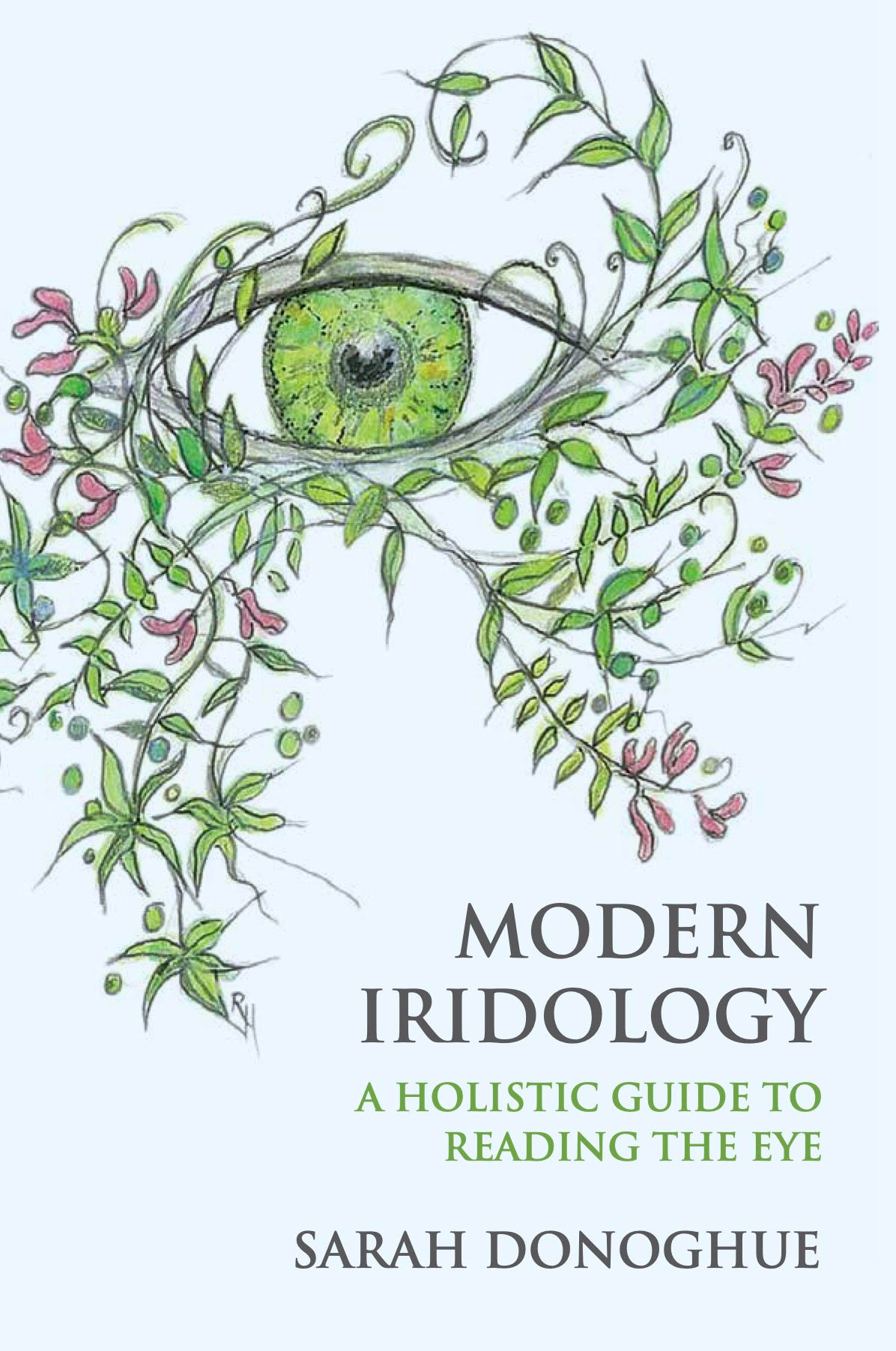
Talking About the Sausage Tree
Earlier this year I had the opportunity to once again appear on the Ask Pat Smart Passive Income show. This time I was with my dear friend and colleague Ashton Cayce talking about our sausage tree cream collaboration. If you’re a herbal entrepreneur or someone who has an interest in creating natural skin care products (or in fact anyone currently operating a small batch business in these difficult times,) this particular episode may be of interest. We discussed the red tape around selling natural products, as well as the frustration around the shipping issues encountered when retailing goods overseas. You can check out that conversation here:
Embracing the Plant Kingdom.
One of my favourite conversations this year was with the beautiful Sophia Stargate from The God-Box Café. I honestly could have chatted with her all night, we had such a great connection. We talked about everything from ancient Cornish poetry to ancestral medicine. I hope you’ll find our conversation as uplifting as I did. Lean in and listen right here.
More Inspirational Reading
Since moving my newsletter over to Substack, I’ve had the enormous pleasure of connecting with some really fantastic writers and creators. I’m loving being part of a community in which “the rising tide lifts all the boats.” Being able to recommend another writer’s work is what makes this platform so different from the usual social media ploy of trapping the reader in an attention game that can never be won.
If you’re looking for more inspiration over the weekend, here are my top recommendations for Substacks you might want to wander over to.
This article by
makes a well observed point about healthcare professionals and fair payment for their skills.“They’ve (nurses) been idealized as angelic and comforting Ladies with the Lamp, expected to view their jobs as a self-denying vocation, like being a nun. (It was in fact nuns who did a lot of the nursing in centuries gone by.) If you’re so saintly, isn’t it crass to expect a living wage?”
Although not in the same boat as folks in the nursing profession, as a herbalist who has often struggled with the notion of charging for my services, this astute and thought provoking point chimed with my narrative of (in particular) women as healers.
This tale of Wise Woman or Witch written and narrated by
also takes an interesting look at the role of the physician.As a person who puts tea high up on the agenda, my last recommendation is this beautiful tale of friendship and tea from Dandelion Seeds which is a pure delight to read while sipping a nice cup of Earl Grey.
I’ll end today’s newsletter with by sharing this really cool short film entitled Leaf Presser which I discovered via Jodi Ettenberg’s Substack “Curious About Everything.” Created by placing different leaves in a stop-motion sequence, the animator describes the work as “made from 12,000 pressed leaves, patience and some thistles.” It really depicts the rich diversity and beauty of the leaves we so often step over or otherwise take for granted.
A heartfelt thanks to all of you who have taken the time to read on to the end of today’s rather long post! I hope you’ve found something useful here - if so, please do get in touch and let me know! I read and respond to every email and would love to know what you'd like to see more of. If you know someone else who might like to read along, please do feel free to sow some herbal seeds by sharing this post.


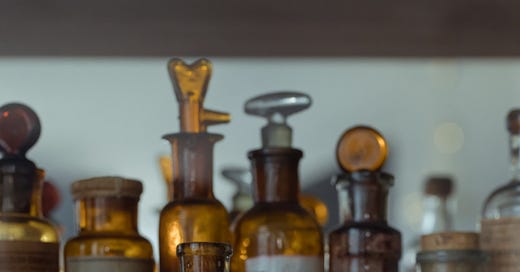



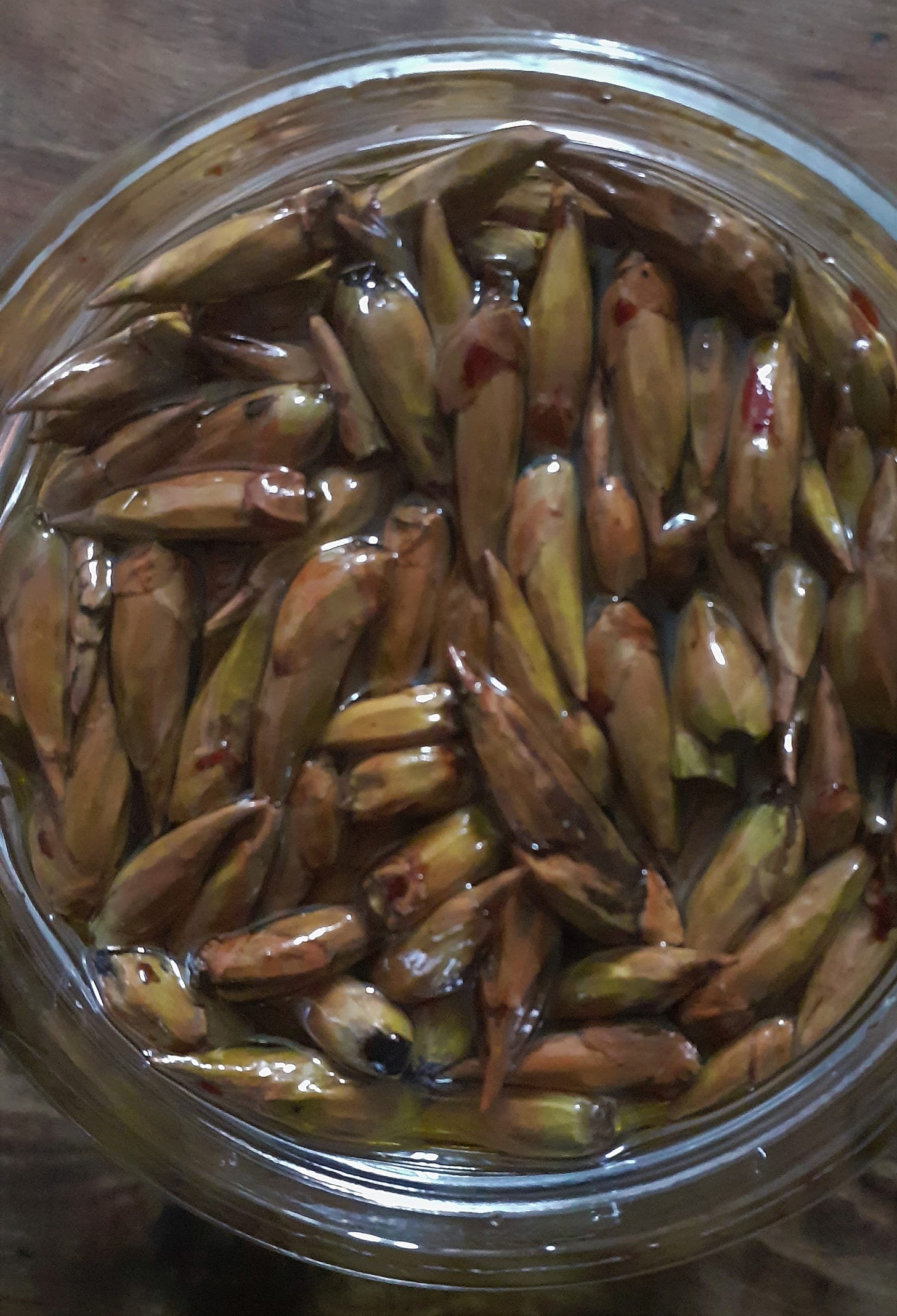
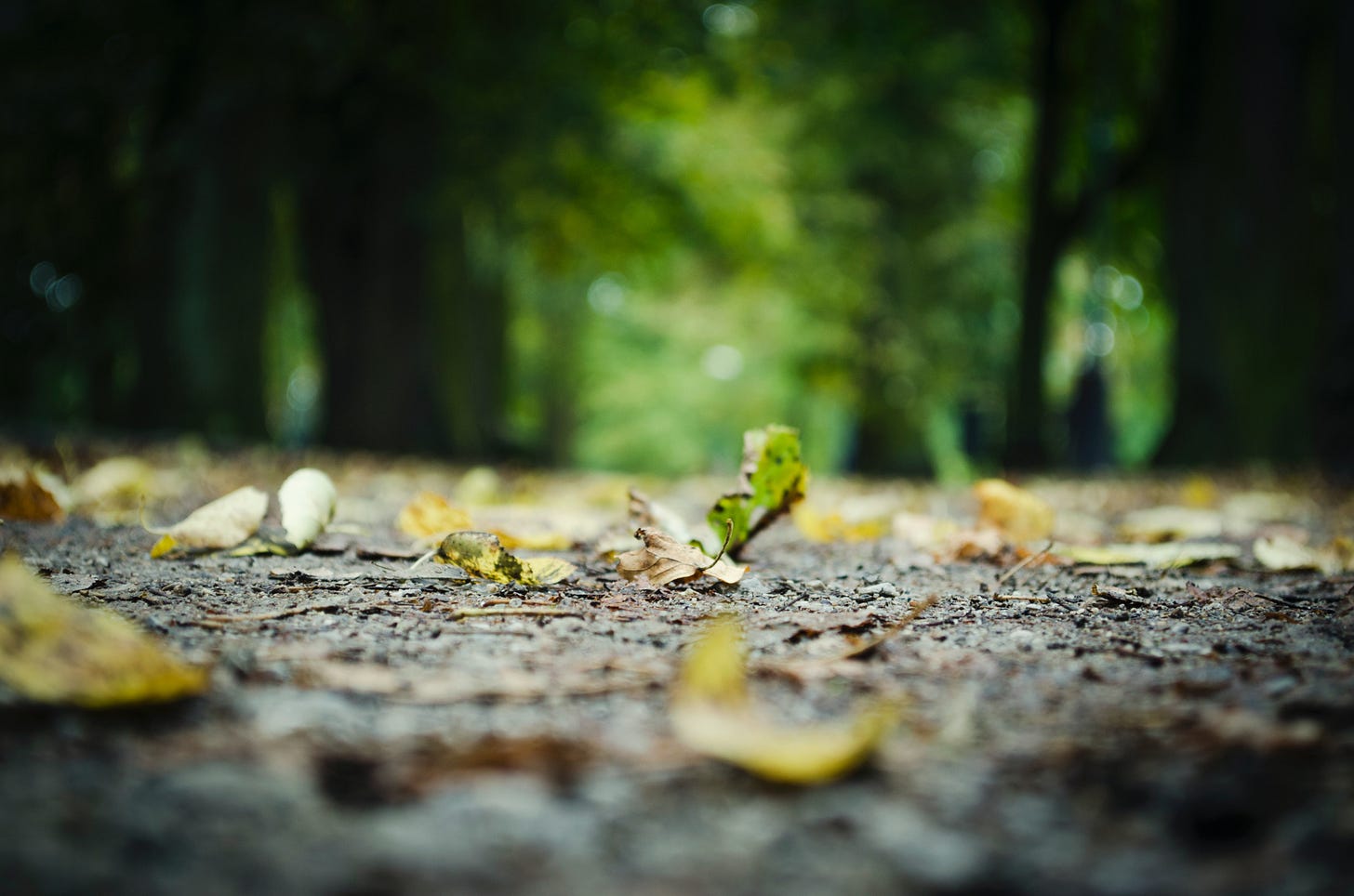
Hi Sarah, I was reading your post with great excitement, your work with essential oils, scents, and the mascerating of poplar buds is so similar to my own journey, and I realised I could learn so much from you. And then at the end of your post I was most pleasantly surprised to find my Substack mentioned! How kind and thoughtful of you! Thank you so much. My favourite summer plant is meadowsweet, and last summer I steeped the flowers in oil on a sunny window sill for 6 weeks, one batch with fresh flowers and one after I'd dried them. I used the oil as a facial cleanser and I can't tell you how uplifting it was to get that blast of gentle summer scent every morning as the weather turned colder and moved into winter. Good luck with the poplar buds! Oh, and I love your Bookshelf, what a fabulous resource.💕
This is a wonderful article. I have read it twice. I am sad to say that I contracted covid 1 1/2 years ago, lost my sense of smell, and have only regained part of it. I can barely taste chocolate, mostly the sweetness of it, although my imagination carries me some of the way. I've noticed that shrimp is only a vague taste, and once again, I find myself imagining the taste as I eat it. Same with some other foods. Since I have been olfactory-dominant in my five senses since birth, it has been distressing to have this valuable sense muted. Through Applied Kinesiology, I have had my vagus nerve worked on, which has helped only minimally. I chew a very minty gum almost daily to remind my brain of intense flavors. As a retired holistic chiropractor, I have hundreds of bottles of fragrance, especially essential oils. I sometimes sniff lemon or rose oil when I'm down, as an upper. Lately, I've been thrilled with spikenard, as it is so earthy. After reading your article, I an encouraged to take daily "doses" of a different fragrance each day to remind my 10th cranial to turn on more. (My chiropractor already told me to do so) Since in my teens, I have been a good cook, but it's hard to be so when one can't taste the food.
I love Ali Isaac's writing, and am thrilled she's back at it with sharing her fabulous articles. She's way too modest about her skills. I told her about you, but she already knew! Great things come out of Ireland. Thank you for this lovely article.